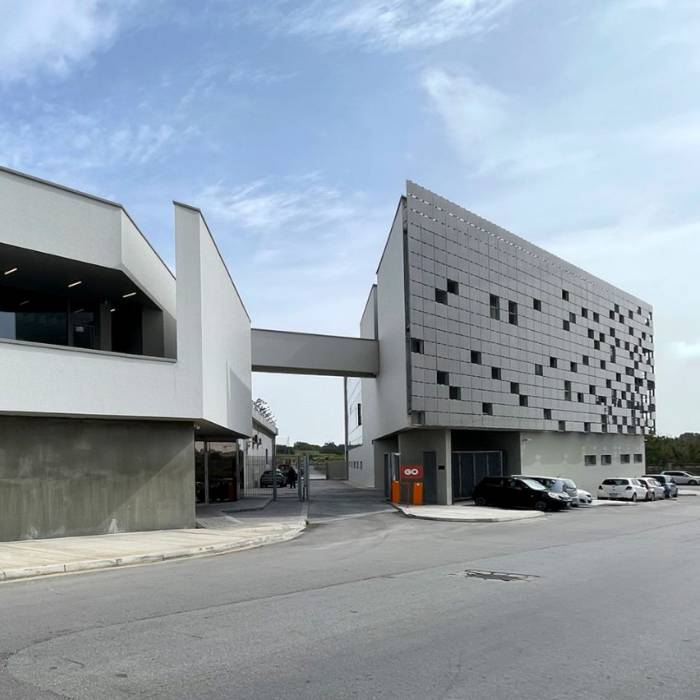JA Malta Chairperson Fabianne Ruggier has affirmed that businesses are having to bear the brunt of the challenges faced when it comes to addressing shortcomings tied to work readiness.
During an interview with MaltaCEOs.mt, Ms Ruggier, who was appointed Chairperson at entrepreneurship and financial literacy education provider JA Malta last year, succeeding Chris Vassallo Cesareo, emphasised that businesses are continuing to suffer from a skills gap.
Prior to being named Chairperson, Ms Ruggier had served as Deputy Chairperson, working well with Mr Vassallo Cesareo. She received the support from JA Malta’s Board of Directors to become Chairperson, and once she got the approval, she shares, there was a seamless handover between Mr Vassallo Cesareo and her.
Businesses have been struggling with recruitment challenges and skills shortages for some time, with many organisations finding it difficult to find the right talent, fuelled by tight labour market conditions. However, this discussion went beyond the shortage of skills within Malta’s workforce, and focused on the ‘work-readiness’ of the country’s young people – their ability to work in a team, use soft skills, understand their responsibilities and accountability within an organisation, and the less ‘formal’ attributes that helps an individual to excel.
Ms Ruggier, who aside from her role at JA Malta is also Director within RSM Malta’s NextGen Advisory team, remarked that more often than not, employers are left with the responsibility to invest heavily when younger members join the workplace for the first time, “even starting from the basics, such as what work ethic and accountability are, what one needs to be responsible for, and how to deliver on the expectations of roles.”

“There’s a lot of time, energy, and resources that are being borne by the business community in order to address the gap and shortages that we are experiencing,” Ms Ruggier stressed.
In order to tackle these skills shortages and have more work-ready individuals, businesses have been encouraged to bring on board more youths and students as interns, with this being seen as a great way for them to get a taste of what it is like being part of a workforce.
Ms Ruggier underscored that internships are “extremely useful for the younger generation,” as to some youths, it would be their very first experience at the workplace.
“It would be interesting for them to see what a day in the life of Fabianne for example, looks like. What does she actually do on an hour-by-hour basis? What does it mean to work in a team? What does business communication look like?” she added.
However, in order to bring in interns, employers have to be well prepared, as once an intern joins, they cannot be expected to possess all of the understanding required and be left to work on their own.
“It takes planning and the necessary design of what work to give them, having the necessary coaches and mentors that genuinely like this aspect of educating, training, and developing,” Ms Ruggier affirmed.
She said that internships “cannot be taken lightly” as they have a significant impact on the younger generation, yet they also involve a “huge amount of responsibility on the employers’ side.”
However, over recent years there have been several calls from student representative bodies and NGOs to allow interns to be fairly compensated for their work, with European Parliament stating that unpaid internships are a “form of exploitation of young workers and a violation of their rights.”
Within a context of rising cost of living and businesses facing skills shortages, internships which are unpaid or are only compensated through an insignificant salary, only continue to add to work-readiness issues.
In June, Members of European Parliament (MEPs) voted to task European Commission with drafting legislation that would ban most unpaid internships across the bloc, with a draft expected to be ready in early 2024. However, the publishing of a directive has already been postponed twice, with it now increasingly unlikely that it will be published in time for the June 2024 EU elections.
Commenting, Ms Ruggier emphasised that at the end of the day, this is a situation that “should be treated with fairness.” She affirmed that interns should thus be fairly compensated for the level of work and skill that they are giving to their employers.
On the other hand, she acknowledged that businesses “cannot offer the same salary of a junior individual to an intern or someone who is still studying, as they would not have the full profile and experience one would expect.”
“However, I don’t believe in free labour. I believe there should be fair and just compensation according to the level of the individual,” Ms Ruggier explained.

One of the key elements of work-readiness is financial literacy, and hence knowing the true value of money and what one needs to do in order to manage it effectively. Over recent months, this has been a hot topic in the business space, especially since there has been a rise in financial scams, with scammers utilising more intricate technology to get access to bank details and other important information.
Ms Ruggier stated that financial literacy is all about “equipping the individual with skills to be financially independent.” In the earlier years, this would mainly come from parents and the surrounding environment, both chosen and imposed.
She remarked that there needs to be more guidance on financial literacy in Malta’s formal education system, “so youths could be left on their own devices about how to think about their future and how to think of ways they can improve their sense of security and independence.”
“I’ve seen more people being vocal about financial literacy on social media, including freelancers. JA Malta is also taking a stand together with our corporate sponsors, to reach out and provide programmes that can give you the basic understanding about what you should be doing about this,” she continued.
Ms Ruggier also linked this to JA Malta’s entrepreneurship programmes, stating that the objective is to allow youths to look at future options where they can generate their own money, as well as help them get out of their comfort zone.
“When I accompany teams to international events, in the run-up they would be feeling a lot of nervousness and fear of being in front of international audiences. It is not necessarily skills you would be trained on a daily basis at school. It is challenging, but as you’re in it, and even in the days after, you’d see them so hyped up and excited. It is an experience they’d take with them through life, not just momentary excitement,” she continued.
Featured Image:
JA Malta Chairperson Fabianne Ruggier / JA Malta
Economist JP Fabri cautions Malta to balance ‘stability and renewal’ in post-budget debate
The budget placed heavy emphasis on direct tax cuts and social measures aimed at easing current financial pressures.
Autumn reflections with Chef Francesco Mazzei
A conversation with Corinthia Palace’s very own Francesco Mazzei – the Calabrian-born, world-renowned chef, who has made his home-away-from-home.
GO CEO Nikhil Patil and BMIT’s Christian Sammut appointed as non-executive directors at Malta Properties
Their appointment follows BMIT Technologies’ recent acquisition of a 49% equity stake in MPC.
CrabNeubla CEO named Malta’s cyber leader of the year
The cyber security leader was awarded during the seventh edition of CYBER ROOT, Malta’s Malta’s national cybersecurity









